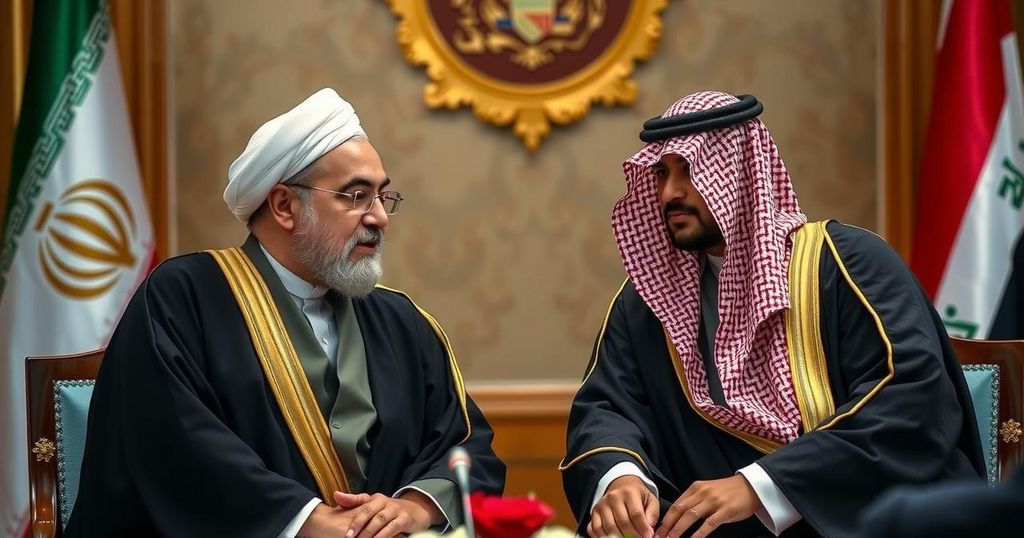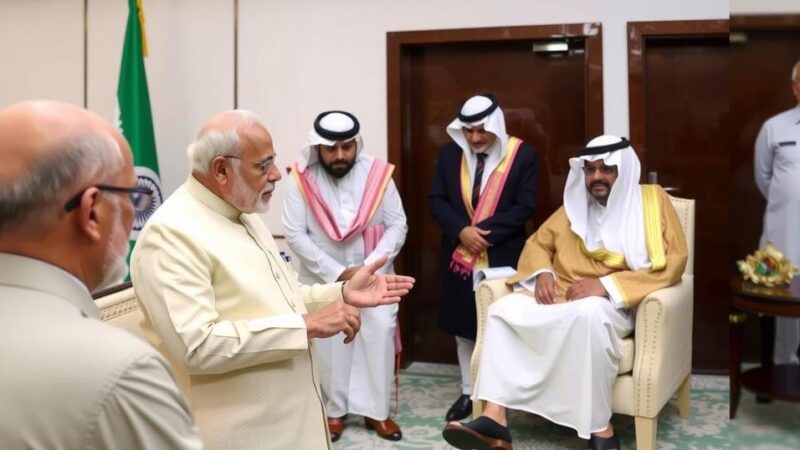Iranian President Pezeshkian and Qatari Emir Sheikh Tamim discussed regional security, emphasizing cooperation against terrorism in Syria. They criticized foreign interventions and heralded Qatar’s mediating role, affirming their commitment to preserving territorial integrity and fostering peace in the region while condemning Israel’s destabilizing impacts.
In a recent telephone conversation, Iranian President Pezeshkian and Qatari Emir Sheikh Tamim addressed the critical situation in Syria, asserting the need for a secure region that maintains the sovereignty of Islamic nations. President Pezeshkian emphasized the adverse impact of terrorism and instability, advocating for regional cooperation to combat these threats. He praised Qatar’s role in mediating regional crises, particularly concerning Gaza, and expressed hopes for ongoing collaboration to enhance peace among Islamic countries.
President Pezeshkian explicitly criticized the role of Israel in perpetuating instability in the Islamic world, asserting the necessity for unity within the Islamic Ummah to overcome discord. He highlighted the strong bilateral relations between Iran and Qatar, urging for expedited implementation of agreements from his recent visit to Doha.
Emir Sheikh Tamim reciprocated, underscoring shared perspectives between Tehran and Doha regarding regional concerns, particularly in relation to Gaza, Lebanon, and the preservation of Syria’s territorial integrity. He noted that the current violence in Syria underscores the need for a political dialogue to achieve stability, expressing Qatar’s readiness to facilitate a political resolution.
The Emir affirmed the significance of the strong bilateral ties, indicating optimism regarding future relations stemming from their recent agreements.
The ongoing crisis in Syria has prompted various nations to engage in dialogue aimed at resolving instability in the region. Iran and Qatar, both significant players in Middle Eastern politics, have positioned themselves as partners in promoting peace and security. The resurgence of terrorist threats in northern Syria further amplifies the urgency for a unified approach among Islamic nations to counteract these dangers and uphold territorial integrity. Their collaborative efforts also reflect broader geopolitical considerations, influencing regional dynamics, particularly in relation to Israel and U.S. foreign policy.
In conclusion, the dialogue between the Iranian President and Qatari Emir highlights a concerted effort to address Syria’s crisis through regional cooperation. By fostering unity among Islamic nations, both leaders advocate for a political solution to the ongoing conflict, emphasizing the detrimental effects of terrorism. Their strong bilateral ties and shared perspectives promise a collaborative approach to resolving pressing regional issues, reinforcing the necessity for dialogue in achieving lasting peace.
Original Source: ifpnews.com







